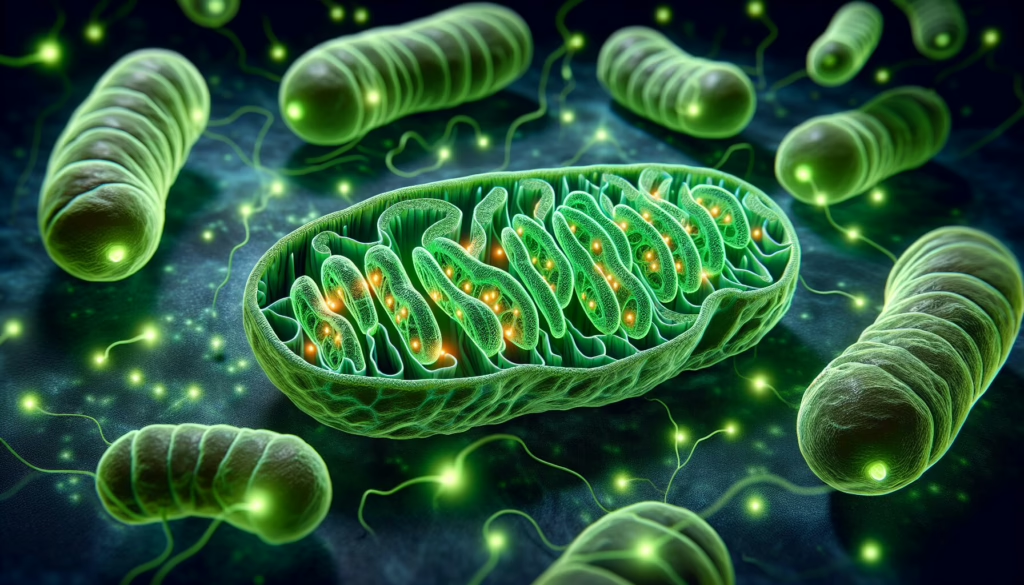
Does Magnesium Give You More Energy
Magnesium is directly involved in various cellular processes which support healthy energy production within the body and so does possibly help to give you more energy when levels are increased. This mineral is the fourth most abundant mineral in the body and is used in over 300 different sorts of metabolic reactions.
Various studies have shown that healthy levels of magnesium may support higher energy levels and that this occurs mainly through driving healthy ATP levels in our mitochondria. Magnesium may be able to do this by supporting the production of important building blocks of ATP while also supporting mitochondrial protein production. ATP is the molecule which our body uses for energy to sustain all of our life supportive functions.
Magnesium is an important mineral that also supports healthy muscle movement. Some symptoms of a magnesium deficiency include muscle cramps and fatigue. The average person needs about 420mg of magnesium each day. Those who are more active may need more magnesium than this because of an increase in magnesium use with muscular exercise. Studies show however that around 60% of adults in the United States are not consuming the minimum RDA for magnesium.
Here the ways in which magnesium supports our wellbeing will be considered in relation to how this mineral does possibly have the ability to give you more energy.

How Magnesium Supports Our Wellbeing
Magnesium is an essential mineral electrolyte. The body uses magnesium on a daily basis to support different processes which are important for sustaining optimal cellular activity. The activity of our cells is important because they form and support wider tissue or vital organ functions.
Our skeletal muscles are examples of tissues which use magnesium very regularly. Magnesium supports optimal muscle functioning through helping to signal healthy muscle relaxations. Magnesium is an important mineral electrolyte for healthy neuromuscular signalling. This in addition to being supportive of very important cellular processes.
When we exercise we use our pools of magnesium to support muscle movement. Magnesium depletion is associated with structural damage to muscle cells while higher magnesium levels may promote muscle regeneration.
Exercise And Magnesium Levels
Being highly active and doing very intense exercise also results in excess sweating. Our sweat releases lots of electrolytes such as magnesium. This is in addition to muscle movements which use electrolytes too. This is an important reason why we must support our levels of important electrolytes such as magnesium each day. For athletes and intensive exercisers or very active people this is an important part of proper recovery.
Some symptoms of electrolyte depletion include muscle cramping and fatigue. These are also very common symptoms of magnesium deficiency. Depletion of electrolytes such as magnesium is more likely to happen with intensive exercise and in hot weather when we sweat more often.
As you can imagine our bodies use a lot of magnesium every day with or without intensive exercise. We therefore need to regularly consume this mineral and support our pools of this electrolyte.
The recommended RDA for magnesium is about 420mg. This means the average person should be aiming to consume at least this amount of magnesium. Very active people may need more magnesium than this. Achieving this level of magnesium intake is easily done through consuming magnesium rich foods or magnesium supplements such as magnesium citrate.
If you would like to read more about magnesium supplements and quality differences between magnesium supplements then you could read our article on this topic here.
For some foods rich in electrolytes such as magnesium we have made a list of some of the best electrolyte foods and you can read that article here.

How Magnesium Supports Mitochondrial Energy Production
A very common symptom of magnesium depletion from either a deficiency or exercise is muscle fatigue as shown by research. This is a crucial physical indicator that magnesium has a role in supporting optimal energy levels and muscle function.
There are various reasons why this is the case and why research supports the notion that higher levels of magnesium does possibly influence fatigue or could give you more energy.
Studies show that magnesium is important in forming the basic building blocks needed for energy production. Magnesium helps to form a molecule called adenosine via adenine production. Adenosine is important for the formation of ADP and ATP. ATP is the final molecule which our bodies use for energy to drive all of our core functions. This includes everything from muscle movement to our thought processes. This is one of the most important reasons why higher levels of magnesium in the body does possibly give you more energy.
Magnesium also allows or activates various reactions in mitochondrial ATP energy production cycles. This is how energy or ATP is made from starter molecules like sugars or fatty acids. Magnesium is one of the most important energy production cofactors because of the vital role this mineral has in the final ATP production stage.

Magnesium And Mitochondrial Growth
Another reason why improved magnesium levels in the body does have a possible influence on being able to give you more energy is the fact that magnesium promotes DNA synthesis. Improvements in DNA synthesis may lead to the increased production of vital structural components of our cells and energy producing mitochondria.
This not only supports mitochondrial functioning but could also optimise energy production. That could then lead to more energy for you to use throughout the day. These may be reasons why the mitochondria help developed a capacity to store magnesium.
Magnesium deficiencies could cause mitochondrial dysfunctions because of how fundamental this mineral is to ATP production. Magnesium deficiency would then promote inflammation and oxidative stress which could further worsen energy production. This would also promote fatigue. One study showed the mitochondria may actually swell under magnesium deficiency.
Higher levels of magnesium could also improve mitochondria numbers and therefore further boost energy production. This is again because magnesium is rate limiting on mitochondrial DNA and protein synthesis. A higher rate of DNA production could enhance the rate of new mitochondria formation known as mitochondrial biogenesis.

Magnesium And Athletic Performance
According to various studies many elite level athletes are deficient in magnesium. Some studies show that magnesium could be an aid for athletes in supporting athletic performance. This is because of the role higher levels of magnesium may play in sustaining optimal levels of energy production during exercise.
For some athletes extent of muscle soreness, perceived muscle recovery and perceived physical exertion were all improved with a higher magnesium intake. Studies have found that antioxidant status was higher with elevated levels of magnesium. This may also be associated with increases in exercise performance in addition to support with healthy energy production and recovery. One study found that younger athletes who supplemented with magnesium had significant improvements in muscular strength and performance when following a strenuous exercise routine.
Higher levels of magnesium seems to be an indicator of muscle performance in older people too. One study found that older adults had improved scores of basic muscle functions with higher magnesium levels. Other studies have found similar results too. Muscle ATP is linked to magnesium status and this is thought to be one of the main reasons for this.
Overall the research very clearly shows that magnesium does have a possible role in being able to give you more energy via supporting important cellular processes.

Summary
Research shows that magnesium is directly involved in various cellular processes which support healthy energy production within the body. This means higher levels of magnesium could help to give you more energy throughout the day.
Magnesium is an important electrolyte which the body uses to help signal healthy muscle relaxations. When we sweat and exercise we use a lot of magnesium. Symptoms of magnesium depletion may include muscle cramps and fatigue. For athletes and intensive exercisers or very active people optimal levels of magnesium are an important part of proper exercise recovery. The recommended RDA for magnesium for the average person is about 420mg.
Studies show that higher levels of magnesium may drive healthy ATP levels in our energy producing mitochondria. This is because magnesium supports the production of adenine via adenosine formation. Adenine is a core building block of ATP. ATP is the final molecule our bodies use as energy to support all of our cellular processes. Healthy levels of ATP drive muscle functioning.
Another way magnesium could support higher energy levels is through supporting DNA production and increasing protein synthesis in our energy producing mitochondria. This could lead to improvements in energy production and fatigue reduction. Research shows that a higher magnesium status is associated with muscle performance in both athletes and the elderly. One key reason for this is thought to be the importance of magnesium in ATP production.
Overall the research shows that magnesium does have a possible role in being able to give you more energy via supporting important cellular processes including ATP production.
For more interesting articles see the main articles page.





